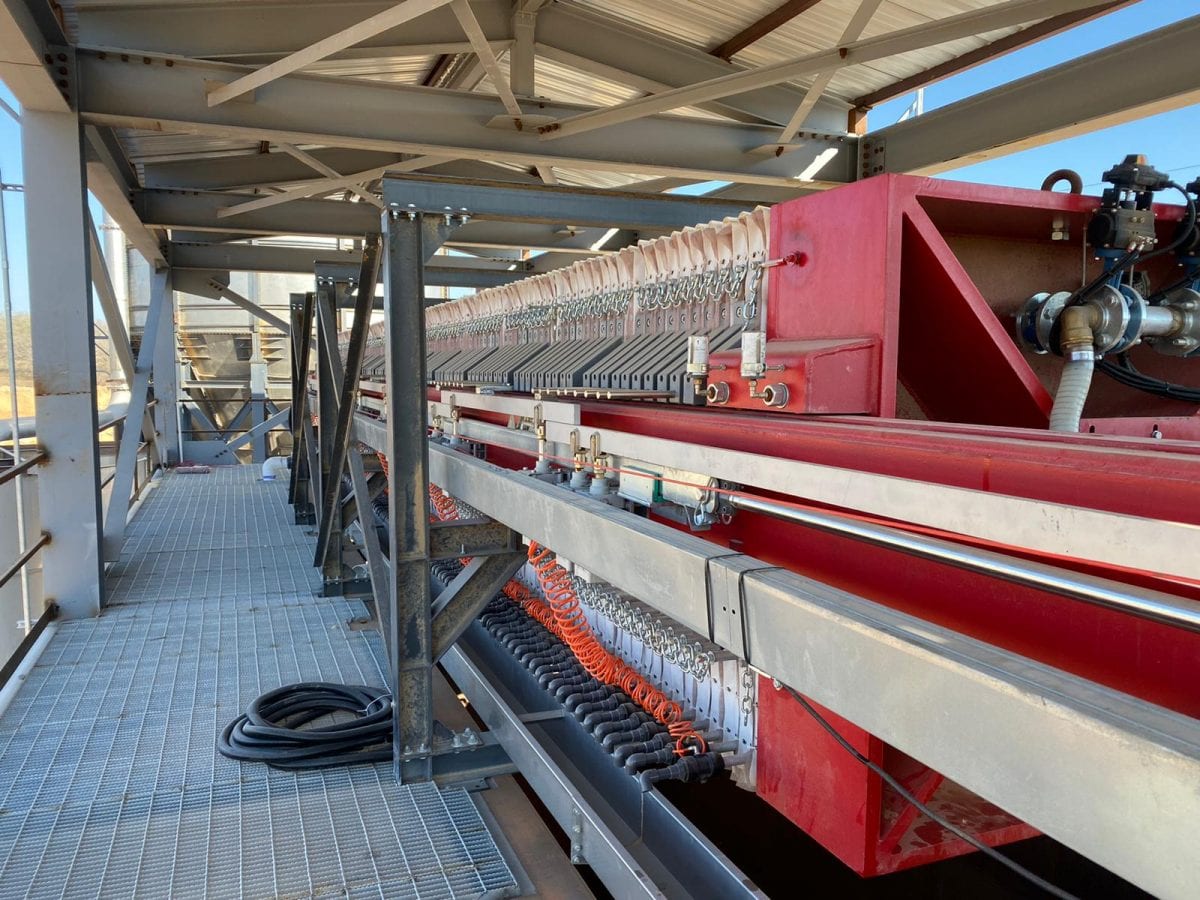
The affordability of a filter press is a major concern for many businesses. Can a filter press be an affordable investment for smaller operations with limited capital budgets? Traditionally, wastewater treatment required significant capital investment, hiring engineers, and using large quantities of chemicals. As a result, many small operations hesitated to invest in filter press systems due to cost concerns.
However, advancements in automation and programmed logic controllers (PLCs) have made even highly automated systems more compact, efficient, and affordable. This article explores how modern filter presses can provide cost-effective solutions for wastewater treatment while reducing operational expenses and improving efficiency.
A filter press is a liquid/solid separation system that removes sludge and contaminants from wastewater by applying pressure-driven filtration across a filter media. The process:
This same filtration principle applies to small, medium, and large-scale filter presses, making them useful across industries like ready-mix concrete, metal plating, and precast operations.
In a small ready-mix operation, returning concrete trucks must be washed, using 100-250 gallons of water per truck. This wastewater is typically sent to settling basins for weeks-long dewatering.
A small automated filter press can justify its capital investment by reducing water costs, labor expenses, and maintenance efforts, making it a cost-effective solution for smaller operations.
A major factor in the affordability of modern filter presses is automation. Older filter press systems required constant manual labor, increasing operational costs. Today’s automated filter presses reduce labor requirements, improving cost-effectiveness and safety.
A small, automated filter press with features like a shaker system, real wash cleaning, and PLC control typically costs between $30,000 – $60,000.
The Challenge: A precast manufacturer needed a cost-effective way to handle concrete slurry waste.
The Solution: Installed a fully automated 400×400 mm filter press, the smallest commercial unit available.
Total Project Cost: $80,000
Result: This small filter press now efficiently handles wastewater recycling and solids disposal, proving that automation makes filter presses affordable even for smaller businesses.
Yes. Small automated filter presses cost between $30,000 – $60,000 and reduce labor and operational costs, making them affordable for small businesses.
Automation eliminates manual labor costs, improves efficiency, and enhances safety, resulting in long-term cost savings.
Industries such as ready-mix concrete, metal plating, precast concrete, and small manufacturing plants benefit from affordable wastewater treatment solutions.
For small businesses, wastewater management no longer has to be expensive. The automation revolution in filter presses allows companies to reduce labor costs, increase efficiency, and achieve sustainability with a manageable capital investment.
Instead of thinking “too big, too expensive, and too complex”, businesses should now consider:
Looking for an Affordable Filter Press? Contact us today to explore cost-effective wastewater solutions.
Nick Piskura is the Marketing and Web Development Specialist at ChemREADY who utilizes expertise in digital marketing strategies to provide knowledgeable insights in each segment of our business. Nick provides insights through web development and multimedia resources that support ChemREADY’s full range of services, including Legionella management, ANSI/AAMI ST108 compliance, boiler and cooling tower treatment, wastewater processing, and industrial water quality solutions.